#Martin scorse
Explore tagged Tumblr posts
Photo
After Hours (1985)
Horas Después


griffin dunne in after hours (1985) dir. martin scorsese
1K notes
·
View notes
Text
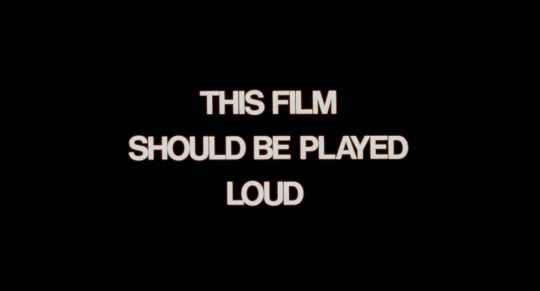
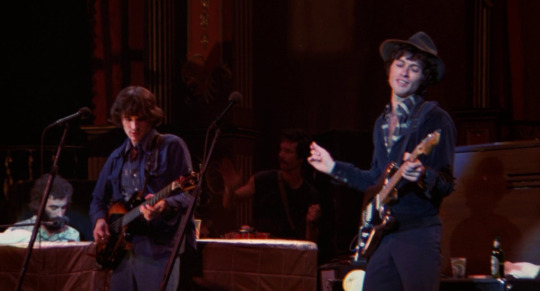
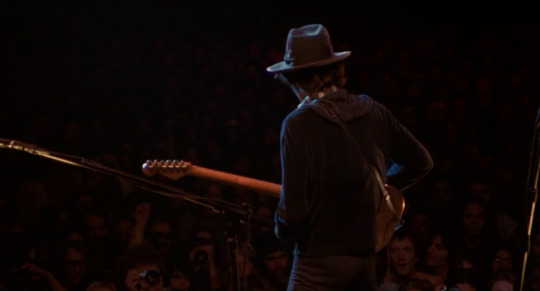
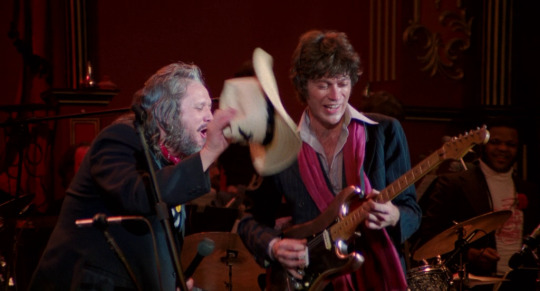

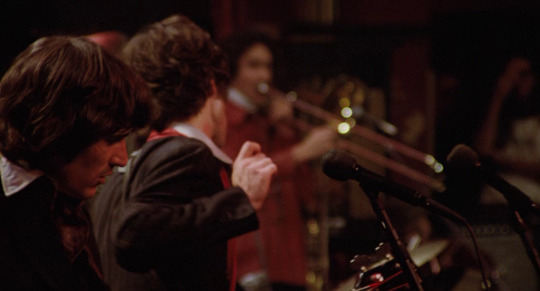


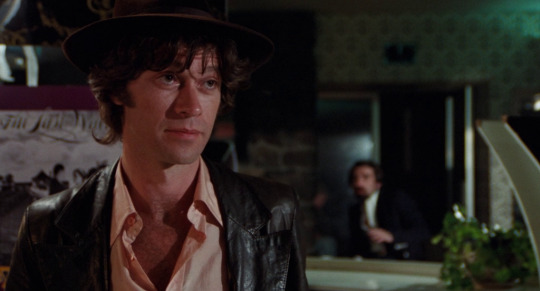

RIP, Robbie Robertson (1943-2023)
Martin Scorsese
- The Last Waltz
1978
605 notes
·
View notes
Text
𝘔𝘺 𝘞𝘦𝘪𝘳𝘥 𝘉𝘰𝘺 - 𝘛𝘳𝘢𝘷𝘪𝘴 𝘉𝘪𝘤𝘬𝘭𝘦 𝘹 𝘙𝘦𝘢𝘥𝘦𝘳
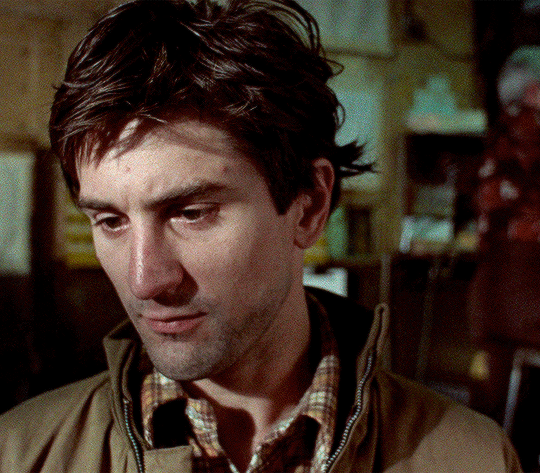
This is a re-upload, y'all.... this ain't nothing new... I just accidentally deleted it last year and I was seething trying to search for it for months⚠️🗣️🗣️
I love MY man, Travis. Hehe
There was never a day that you weren’t on Travis’s mind, it was often that he spent time thinking about you; by now it was his favorite pastime. Travis would think about you at work as he drove around the grimy parts of New York, you alone were his morale when the hours dragged on.
If he was alone in the confines of his apartment you were almost always his first thought when he woke up and the last one before he went to bed. During his spouts of insomnia, he’d imagine your face, he’d picture your features. The sound of your voice was like a lullaby, one he’d use to lull himself to sleep.
To say Travis thought about you frequently was an understatement.
Today was no expectation. Today was particularly tedious for Travis, it was raining during his shift; heavy pellets of rain poured down on his taxi as he was parked by the curb. The sound of the rain was a hard pitter-patter; the rain seemed to silence the sounds of the city, blocking out the noise that Travis considered ugly, it was a silence he enjoyed, it was a silence that allowed him to be trapped in his own thoughts.
So, naturally, Travis had gotten to thinking about you. He began replaying the moments the both of you had shared in his head. His mind wandered to this morning. Both of you had risen early and met each other at your favorite diner to get breakfast.
It was a brief meeting, neither you nor he had spoken much to each other as both of you were tired and hungry, but the moment offered a level of comfort. The both of you always enjoyed each other’s company; Travis, especially who cherished any moment no matter how fleeting it was.
As he thought about it now, he smiled to himself. He looked at his right hand, he could feel the tingle left over from when you had held it, squeezing it before you hurriedly rushed out of the diner for work.
Travis could still feel the softness of your hand, he could feel the warmth of your hand being transferred to his. He remembered feeling dizzy from the touch. He imagined every detail, the shape of your hand, the way your fingers bent to interlock with his slender ones. The firm grip of your hand left static in his body, a static that felt like tiny shocks. The static made his brain buzz, rendering him mute and incoherent for some time.
Travis would become such a mess at the slightest touch, no matter how brief or minuscule it was. He was so quick to lap up any affection you gave.
To Travis these little moments were precious, he had never been touched so intimately before by someone who cared for him. He had been alone for so long and felt so empty for the majority of his life. He had bounced from place to place, never really fitting in, any friends he had were superficial; they never really knew him, and any woman he tried his chance with was freaked out by his intensity or weirdness, (somehow he hadn’t managed to creep you out too badly)
So to have someone like you was a great deal to Travis. He held you in high regard, he idolized you. To him, you were pure, angelic. You were HIS, and his alone. You were something that he felt he needed to protect, to guard against the ugliness of the city.
There were days it angered him that you had to go out there, into the city. It angered him that he not only had to share you but he feared something would happen to you, that he might lose you, or worse that the city would taint you, that one day the scum would pull you in.
If it were up to him he would keep you in his apartment, locked away, kept safe. But Travis knew you’d never be up to the idea... At first. it would take some convincing. Perhaps he would have to use other methods, but he was sure you’d come around... Eventually.
But for now, he’d had other alternative ways of protecting you. Like silently watching you from your apartment in his taxi when he felt something off. He would be parked only a few miles away by the curb.
Or He would stand outside the building you worked at, leering at you to make sure no one was giving you a hard time and no male employee was getting too close.
Recently Travis had developed a habit of watching you when you stayed over at his apartment; either staring intensely at you when you were talking or when you were asleep beside him.
Of course, you didn’t know about any of Travis’s habits and even if you did he would probably find a way to justify it.
Travis looked out the car window, the rain was sliding down, creating a blur of color and water. He exhaled, he had let his mind wander too much now. His thoughts were a mixture of anxiety and affection; all of which centered around you. He hoped the hours went by quickly, he hoped by the time he clocked off it was still raining, and that maybe tonight you might cuddle and listen to the rain together.
#travis bickle#travis bickle imagine#travis bickle x reader#taxi driver#taxi driver imagine#robert de niro x reader#robert de niro#martin scorses
194 notes
·
View notes
Text
✧ ˚ · . ✦ › 𝐆𝐄𝐓 𝐓𝐎 𝐊𝐍𝐎𝐖 𝐌𝐄: 𝐓𝐎𝐏 𝐓𝐄𝐍 𝐌𝐎𝐕𝐈𝐄𝐒 list your top 10 favourite movies & tag friends to do the same
the amazing spider-man
back to the future
transformers: dark of the moon
matrix
superman
treasure planet
terminator 2
the batman
hot fuzz
scott pilgrim vs the world
tagged by: @gunbash <3 tagging: @dollpink , @worthfuls , @croftborn , @whitegowned , @sarastuss , @sanktasolntse & you !
#✧ ˚ · . ✦ › 𝐚𝐥𝐥 𝐭𝐡𝐢𝐬 𝐰𝐚𝐲 𝐭𝐨 𝐬𝐦𝐚𝐬𝐡 𝐦𝐲 𝐩𝐨𝐭 — dash game.#damn this WAS really hard#sorry spider-verse#i clearly have a genre#i need to humble myself#with more dramatic movies but#these are based on how special they are#martin scorses gonna kick my ass#for these choices
6 notes
·
View notes
Text
'In 2018, an interview with Oppenheimer director Christopher Nolan went viral — possibly because it was the first time he’d ever appeared relatable. In that conversation, he said his children sometimes jokingly call him Reynolds Woodcock, after the aloof, reserved protagonist of Paul Thomas Anderson’s Phantom Thread. Though Nolan’s scripts often feature signature, repeated (and often mocked) tropes, including time manipulation, dead spouses, and protagonists who face complex moral decisions, he injects very little of his own personality into his movies. Characters like Leonardo DiCaprio’s troubled team leader in Inception and Robert Pattinson’s equally troubled handler in Tenet are clearly styled after Nolan himself. But viewers rarely come away from Nolan movies with a greater understanding of his worldview, at least compared to the way directors like Martin Scorsese or Quentin Tarantino put their personalities on screen in every movie they make.
One underappreciated idea does recur over and over in Nolan’s work, though, and it surfaces again in Oppenheimer. The protagonists of many Nolan films become obsessed with a specific fear and go to great lengths to better understand or control their terror. In Nolan’s first blockbuster, Batman Begins, gangster Carmine Falcone (Tom Wilkinson) tells Bruce Wayne (Christian Bale), “You always fear what you don’t understand.” The quote acts as something of a guiding light not just for Bruce, but for Nolan’s back shelf of protagonists who seek a deeper knowledge of their phobias for the sake of control. In Oppenheimer, Nolan imprints this narrative device on a historical figure for the first time, and it feels like he’s being more open than ever about revealing what keeps him up at night.
There is no evidence that J. Robert Oppenheimer, the father of the atomic bomb, struggled with frightening visions of high-energy subatomic particles. This doesn’t come through in any documents about Oppenheimer the man, and Nolan seems to have added the idea to dramatize the film, as Oppenheimer periodically pauses to register and recoil from flashes of light, particles, and fire, all representing wordless fears he can’t explain. Though the movie’s dialogue never explicitly references these mysterious events, Nolan’s evocative imagery asks the audience to fill in the gaps themselves — are we seeing what’s in his mind, his future, or something else entirely?
Nolan’s Oppenheimer presents as an awkward, unsociable student with something off about him. It isn’t hard to imagine that he’s troubled by something. And what does this frightful student do? He dives deep into particle physics, devoting his life to understanding and attempting to control his fear — until it reaches critical mass.
The origin story in Batman Begins is the clearest example of this phenomenon: Batman’s vigilante persona was inspired by a traumatic childhood experience with bats. That plot point hews closely to Frank Miller and David Mazzucchelli’s classic 1987 comic arc Batman: Year One, but the film dives far deeper into Bruce’s fervent need to understand and control his terror. In a number of sequences featuring fear gas used by the movie’s villain, Scarecrow (played by Cillian Murphy, who also plays Nolan’s Oppenheimer), the filmmaker dips his toes into horror-inflected imagery. The Gothic architecture of Gotham combines with nightmarish sequences where villains see the superhero as a demonic monster, literalizing the metaphor of Bruce becoming his fear.
Following Batman Begins, Nolan’s Batman movies continue to dwell on this theme. Nolan assaults his protagonist with a series of villains who take on the shape of new nightmares. It’s as if he’s trying to teach Batman how to overcome the things he most dreads.
In addition to Bruce Wayne, the two protagonists Oppenheimer most resembles in this way are Leonardo DiCaprio’s Dom Cobb in Inception and Guy Pearce’s Leonard Shelby in Memento. The latter, Nolan’s mainstream breakthrough, focuses on a man with short-term memory loss who is so afraid of forgetting his purpose that he has it tattooed on his body. A significant portion of Inception takes place within Cobb’s dreams, which, through a very thinly veiled metaphor, are haunted by his wife Mal, played by Marion Cotillard. Guilt-ridden by the circumstances of her death, he subconsciously creates a murderous avatar in the shape of the shame he’s too afraid to face. He wrestles for control within his memory, attempting to hide her in a symbolic (and literal) basement in his mind. It doesn’t exactly work out.
Throughout Oppenheimer’s three-hour run time, Cillian Murphy’s protagonist struggles with existential horrors that are much larger than his personal regrets. In addition to the frightening visual bursts of atomic space, the film focuses most of its second-act tensions on the threat that the first atomic bomb test might ignite the hydrogen in Earth’s atmosphere. In real life, that threat was discussed and dismissed by the physicists at Los Alamos. But Nolan lingers on it, sending Oppenheimer to get the opinion of Albert Einstein, who acts as a sort of patron saint of science in the film. But Einstein provides no comforting answers, which ratchets up the tension and fear felt by characters and audience alike.
The threat of humans bringing about their own extinction is no new ground for Nolan’s films. And that may answer why, exactly, he’s so obsessed with fear and the war for control. In Interstellar, climate change devastates crops with a futuristic, dystopian blight. In his 2020 movie Tenet, an unseen society in the future attempts to reverse the flow of time to stop climate change before it gets out of hand. Between those two movies lies the World War II film Dunkirk, about the struggle for survival against a faceless threat. Though the Nazi presence implicitly hangs over the movie, Dunkirk doesn’t linger on a potential apocalypse in quite the same way as other Nolan movies. But the pervasive dread remains.
The fearsome final minutes of Oppenheimer drive this point home, as Nolan gives his protagonist a vision of a future devastated by nuclear apocalypse. His visions of dancing particles and flames give way to a clear, unambiguous doomsday — an uncountable number of rockets fire from an unknown country, streaking across the globe and detonating. Fire consumes everything.
Nolan’s devotion to the theme of people wrestling with their fears ties him to his protagonists, and his more recent focus specifically on humanity causing its own doom ramps that fear up to a universal level. It’s a heavy, existential worry, but it’s an illuminating glimpse into the mind of an artist who rarely lets the audience in. In his films, when a character obsesses about a topic, it typically means that’s the fear that keeps them up at night and drives them toward obsession as a means of control. Both Nolan and his iteration of J. Robert Oppenheimer are exposing their fears that humanity has the power to devastate life on Earth. And as climate change and political tensions simultaneously rise across the planet, it’s hard to blame him.'
#Christopher Nolan#Oppenheimer#Leonardo DiCaprio#Robert Pattinson#Paul Thomas Anderson#Phantom Thread#Tenet#Inception#Martin Scorses#Quentin Tarantino#Batman Begins#Tom Wilkinson#Christian Bale#Guy Pearce#Memento#Marion Cotillard#Albert Einstein#Los Alamos#Interstellar#Dunkirk
3 notes
·
View notes
Note
hoping a project with lili and martin scorse someday, he's followed her ig for a while
That would be cool, does he even manage his instagram or does his daughter?
2 notes
·
View notes
Note
What do you think about this news about Dan Lin? www*hollywoodreporter*com/business/business-news/dan-lin-to-replace-scott-stuber-netflix-film-boss-1235836814/
Great for him, it's one of the most coveted spots in Hollywood. His predecessor got A-listers like Steven Spielberg and Martin Scorses to making movies for Netflix, I think Lin will be able to deliver similar calibers since he came up through Warner Studios where most of the best movies and shows are made so he knows what he's doing.
15 notes
·
View notes
Text
Imagine being Martin Scorse's mutual on letterboxd
3 notes
·
View notes
Text
Could We Peer Produce Movies?
A thought experiment on modern modes of production
originally published 8-28-2023 on my blog
Introduction
In the world of the modern internet, there exists a concept called peer production. You’re probably already very familiar with works produced under this mode. Wikipedia primarily bases its content off of peer production. Likewise almost all free and open source software like the Linux servers that run 90% of the internet, are also made using peer production models.
Last year though, something very interesting happened. A meme went viral on Tumblr about a fake Martin Scorse film called Goncharov. A collective running bit, the meme attracted songs, spec scripts, movie posters, costume designs, and so many other artifacts that would be assembled as part of a pre-production or a pitch process for a movie. All of which were created and distributed through a type of decentralized, uncoordinated peer production. It made me wonder what could have been produced if there had been some tool, structure, or platform to focus all that energy into an actual production.
Especially, in the light of the ongoing SAG-AFTRA & WGA strikes, I think there’s an interesting moment for change in the way entertainment is produced in the USA. The workers that make movies & TV in the country are on strike right now because the middleman bureaucracy of studio production has squeezed too hard & has reached the point that it is trying to push all the humans who actually make art within the system, out of it.
To me, what peer production points towards is a new means of managing the production of goods and services that relies on self-organizing, decentralized community networks that can evolve organically out of the group members doing the actual creative work & the end customers who engage with it. This stands in contrast to the status quo where the control of labor is top-down & the work is centralized in as few laborers as possible in order to maximize the extraction of profit off of that labor.
Context
Crowdfunding as a concept and fundraising mechanism has been around for over a decade now (see my piece from 2012). It has never been easier to attract money to a project, but now instead of attracting ten investors at ten thousand dollars from your local friend, family, & golf network, you can attract ten thousand investors at ten dollars a pop from around the world. Which is to say, you can get your audience or customers to pay for the production up front and cut out investors.
This new ease of raising funds undermines one of the value propositions old studios provided. The other of course being the purchase, maintenance, and provision of capital intensive studio space & filmmaking equipment. However, we are also in a moment where the actual capital costs of tools & input commodities have been driven to near zero. A combination of cheap computers, smartphone proliferation, and a large number of free post-production tool sets now means that the core cost of movie & tv production is the actual creative labor.
And now we’re at a point where the big entertainment studios think they can cut writers and actors and all the other creative labor out of the production cycle! But you don't get the good shit without creative humans. You don’t get novelty without humans. You don’t get art without humans!
Ultimately this stuff is for and by humans, so to try and squeeze them out of the process with AI is just another short-term cost-cutting measure to profit this quarter in exchange for a long-term loss. It's ripping the copper out of the walls, it’s squeezing all the juice out of the orange just to be left with the bitter pulp.
So in a moment where it’s never been easier to raise funds for a project, where it’s never been cheaper to produce art, and where the old institutions responsible for fundraising and providing the tools & space for the actual humans who make art are trying to squeeze the humans themselves out of the picture, what new institutions could we build to put some humanity back into our art?
Proposal
To start with, I would describe these new forms as a type of worker-customer hybrid cooperative. The workers need customers to value & fund the final work (i.e. what good is a show to an empty theater) and the customers want the workers to do the work in the first place (i.e. what good is money if you can’t exchange it for goods and services).
Control & ownership of the cooperative would be represented by two types of shares, one for customers & one for workers. The customer shares would be issued as part of crowdfunding rounds at the beginning of the project. Worker shares would be issued as part of the actual production workflow for things such as contributing concept art, recording voice lines, writing scripts, animating scenes, project management, etc. For legal purposes the cooperative would have copyrights to the work artifacts and final work, but would release stuff back into the public domain or leverage a creative-commons license to prevent work from being locked up for more than five years.
The shares themselves then have value for a few reasons. A share entitles you to vote on steering decisions, authorizing and approving submitted work, and ultimately a share of the profits. I would propose that the power/profit/approval ratio between shares skew towards worker shares. Something like an 80:20 split and ultimately never going lower than 51% for worker shares. The first person to initialize the project would be issued 1 worker share as the chief steward, based on the Little Red Hen Principle. Shares would be non-transferable.
From those initial points a few work pipelines would need to be tooled up. A core mechanism for proposing, planning, intaking, tracking, validating and approving work for the production would be needed.
A core loop of assigning worker share values to tasks, approving the issuance of the work order, & finalizing work artifacts & issuance on delivery would need to be developed. A mechanism for assigning & tracking responsibility for keeping different workflows moving forward and getting delivered could also be implemented. Lastly, a mechanism for creating milestones that when met (and maybe based on supporter approval), disburse actual funds to outstanding worker shares for meeting milestones from the funding pool gathered from supporter contributions could help keep productions moving.
Example
So now that we have a high level idea of what’s going on, let’s look at what an animated production of everyone’s favorite Shakespere play, Hamlet, might look like.
Pre-production on this should be pretty straightforward. The script is already written (and blessedly in the public domain). As it’s going to be animated, there is an opportunity for some parallelized production flows too.
Starting with the animation side of things, we’re probably going to want some concept art. Character design for each of the characters & set design for each of the scenes. The chief steward cuts 10 character design tickets & 10 scene design tickets on the workflow tool & assigns each a value of 1 worker share, assuming the average artist can conduct the work on each ticket in about an hour.
This work cut out, it’s time to break out voice acting work. 10 tickets are written calling for the first line reads of each of the characters. We assume it’s maybe 5 minutes of finished audio, but that it'll have taken the actor an hour to do a few reads & clean up the audio before shipping.
Some mechanism for gating tickets behind approval of other tickets could be implemented to mirror a tryout/portfolio approval process on the part of all cooperative members. That is to say, anyone can pull the “first” ticket, but whoever’s work gets the most approval from the customer/worker shareholders then gets access to the rest of the tickets in that work bucket.
Then you can imagine that as customers fund the project, they can begin to have some say in approving or disapproving things. Maybe the workers can’t decide on which actor to pick for the part of Hamlet, so they leave the vote open to just customers to pick the actor.
Obviously this is not an airtight, ISO standard proposal, it’s more of a thought experiment about how to arrange and manage this kind of work but hopefully it paints a decent enough sketch.
Considerations
Perhaps more complicated endeavors or more complicated productions utilizing this system might not work. But in the current crowdfunding environment, there's clearly been some gaps and failures and the system isn't fully there anyway. Think of Star Citizen as a great example of this. It's relatively easy to get the money, but systems of accountability and checking in seem harder to come by.
I guess there’s also the caveat that there might be a lot of crap work being produced. The free stuff might be overwhelming. But, if you put together a production crew, or production community and make a name for yourself that way, or you make a name for yourself as an independent animator or a voice actor, supporters can trust the production & workers can trust the work.
Conclusion
I'm of the opinion that we are on the cusp of software development and platform development being democratized and in that process these big lumbering bureaucracies that sit in the middle and fundamentally introduce inefficiencies into the system in an effort to arbitrage profit will be cleared away in favor of processes & systems similar to the one I have described above.
I think we can replace these middleman institutions with software systems that distribute the decision-making apparatus with collective voting systems and new tools & processes will have to be developed to manage and facilitate this distributed democracy.
This is food for thought in this moment, where people are being threatened with the notion that automation will take creative, novel, generative work away from humans. But what if the real truth is that automation is more likely to remove the boring, useless middlemen that have given us a decade plus of boring, repetitive Marvel movies (among other things). I like to think we’ll get there sooner rather than later and I’m trying to do my part to help move things along. I hope, when you see an opportunity to jump aboard, you will too.
3 notes
·
View notes
Text
Martin Scorses should direct Muppets Govcharov
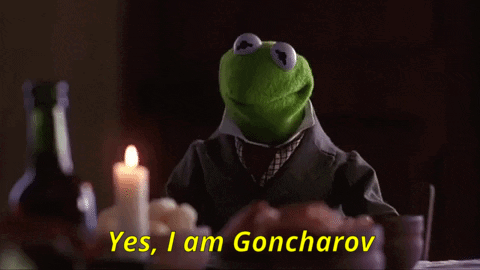
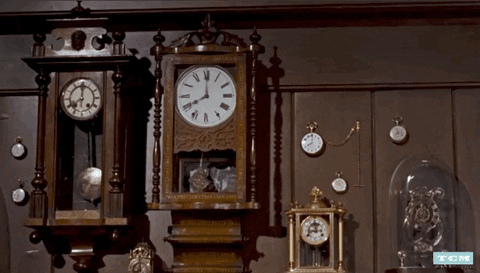
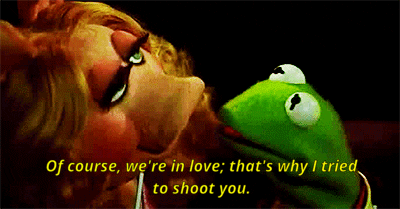
The Muppets as Goncharov (1973)
the only goncharov remake I want is a muppets version
101K notes
·
View notes
Text
Don Riclis is almost against Martin Scorsese during "Casino"
Oscar -winning director revealed that the legend of comedy Don Riclis was tired of Martin Scorsese while filming “Casino” 30 years ago. Before showing the Trebika Film Festival on Thursday at the Beacon Theater to celebrate the “Casino” anniversary, I remembered Scorses and movie star Robert De Niro a night when things were heated with Rickles – also known as MR. Warmth – on a group. Martin…
0 notes
Text
How Bollywood Influence Global Cinema
Bollywood has influenced many filmmakers, film industries and even the audience. This is because of the indians growing culture that is presented in a way through these films that is eye catching, creative and most definitely entertaining. This industry is able to influence many because of how successful and well known Bollywood is. Bollywood would not be Bollywood without the amazing directors and filmmakers producing such amazing films that inspire other filmmakers to take note. One of those influential directors being Satyajit Ray.
youtube
Showed in the clips above are examples of the style of Rays films and you can take note of the different film techniques that he used.

Satyajit Ray
Ray is an Indian film director and screenwriter who has directed 36 films, including feature films, short films and documentaries. His first movie was Pather Panchali (1955), which won 11 international awards. Having his first film receive 11 international awards shows that he was able to reach others internationally, not just in india. Two specific directors that were influenced by Satyalit Ray were Martin Scorses and Wes Anderson, both are American filmmakers.
While reading this article Martin Scorsese Breaks Down The Impact Satyajit Ray’s Pather Panchali had on him, Martin discusses the impact that Ray had on his american films. Martin explains how his exposure to Ray Pather panchali (first film) was eye opening and taught him about different film techniques. Those techniques include long shots, the use of natural locations, as well as the sound effects ray used. Some of those sound effects include subtle jusic and using ambient in the films favor.

Martin Scorsese
youtube
This is an interview of Martin Scorsese discussing how influential Ray was to him as a director. He talks about how he did not have the resources he would need to learn about the india film industry, that why he would go to Ray films to learn more. He stated “Whenever I need to be energized or inspired I go back to his films.”
The other director that was influenced by Ray was Wes Anderson. Anderson is known for being one of the greatest living directors of western cinema. In the article Exploring the Satyajit Ray and Wes Anderson Connect, Wes explains the influence Ray had on one of his films The Darjeeling Limited. He took techniques such as the use of rich color pallets and symmetrical framing from ray to enhance his films.

Wes Anderson
1 note
·
View note
Text
Jubilee Films for Pilgrims of Hope: 'Silence' - Vatican News
0 notes
Text
But like Martin Scorses isn’t involved in The Godfather. Robert De Niro also wasn’t in the 1st one. Was he saying they wouldn’t release a Russian mob movie set in Italy in 1973?
shout out to when i told my dad about goncharov and he figured out it was fake because i told him "1973 martin scorsese film with robert de niro" and he said that wasn't possible because the godfather came out in 1972 and the godfather part II came out in 1974 and they wouldn't have had time to make a movie in between. a perfectly good jest, foiled by this man's weird and vast knowledge set
26K notes
·
View notes
Text
Woah okay nvm i found an article dating back to March?
Apparently We Are Robin is partially inspired by the Ferguson protests? But this article is quoting him not interviewing him maybe I'm missing an article I can't find so idk...
That’s interesting, i’m not too well versed on the subject but that adds to the metaphor to a specific event. How do we feel about that chat?
There’s a thread where some dislikes it and others like it but idk, that’s the first time i’ve heard anyone mention this
He is absolutely inspired by Taxi Driver and other Matt Scorse films, yeah it all adds up
0 notes
